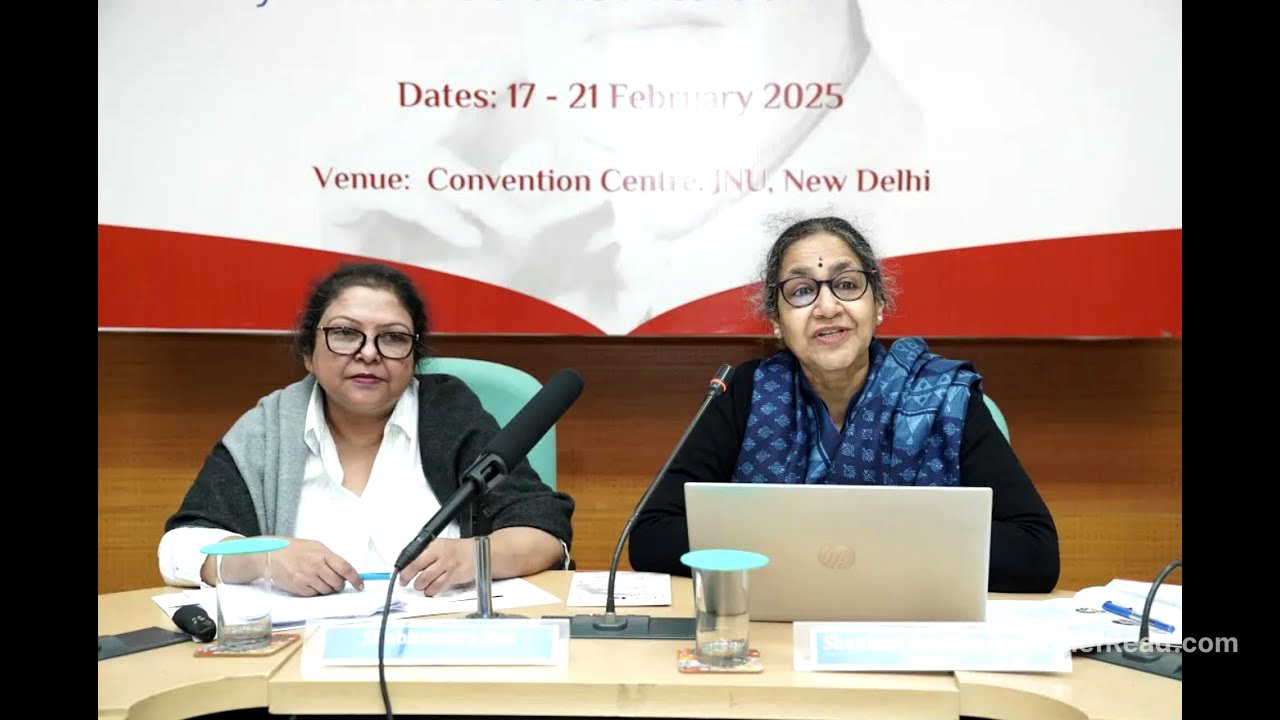TLDR;
This session explores the geopolitical relevance of Pacific Islands within the Indo-Pacific framework, highlighting their significance as transit points for global trade and microcosms of power balance. It examines the strategic interests of Pacific Rim countries, the impact of historical and contemporary power dynamics, and the evolving role of these islands in the face of climate change and geopolitical competition. The discussion also covers the strategic culture, security agreements, and economic influences shaping the region, as well as the efforts to balance geopolitical priorities with the unique needs and perspectives of the Pacific Islanders.
- Pacific Islands are vital due to their location on global trade routes and as a site of power balance among Pacific Rim countries.
- The region is witnessing a new form of strategic competition, particularly between the US and China, impacting the development and security of the islands.
- The concept of "Oceana" represents the maritime identity and emotional connection of the islanders to the ocean, influencing their diplomatic and regional strategies.
Introduction: Why the Indo-Pacific Matters [0:00]
The session begins with an introduction to the topic of why the Indo-Pacific matters, focusing on the geopolitical relevance of the Pacific Islands. The speaker notes the ubiquity of the term "Indo-Pacific" and its importance in current discussions. The presentation aims to explore the Pacific side of the Indo-Pacific narrative, examining the strategic significance of the Pacific Islands in this evolving geopolitical landscape.
Geopolitical Relevance of Pacific Islands [5:28]
The Pacific Island region is crucial as a transit point for global trade routes and a microcosm of the balance of power among Pacific Rim countries, including Australia, New Zealand, parts of Southeast Asia, China, Russia, and the Americas. These countries often view small island states as pawns or victims, although some studies recognise them as actors. The speaker challenges the notion of "smallness," arguing that the large Exclusive Economic Zones (EEZs) of these island countries make them large oceanic countries, emphasising the importance of maritime identity and the concept of "Oceana" as an emotional expression of this identity.
Historical and Contemporary Influences [8:30]
The Pacific Islands have diverse economic interests shaped by colonial powers and now Pacific Rim countries, giving the region new strategic significance. Historically, this involved plantation mining, exploitation of natural resources, nuclear testing after World War II, and currently, the building of military bases and aid distribution. The impact of the Cold War differed from the present US-China rivalry, with islands slowly decolonising and development assistance being strategically used to maintain influence, fortifying the region against powers like the USSR and now China.
The New Great Game: US vs China [9:56]
The current dynamic involves China's deep involvement in the region and its determination to integrate Taiwan, met with resistance from the US. The "new normal" includes domestic concerns of climate change and regionalism, alongside China's assertive ascendance, making small islands wary of its intentions. Geography and politics are essential in understanding the islands' role in power games, with geography being a permanent factor in foreign policy, considering space, location, distance, and resources.
Strategic Culture and Military Presence [11:59]
Strategic culture in the Pacific is primarily shaped by Pacific Rim countries rather than the islanders themselves, raising questions about synchronisation between their strategic cultures. During the Cold War, the US fortified the region against communism, establishing numerous bases. Although the US reduced its naval presence after the Cold War, it increased it again with the pivot to the Asia-Pacific, reinstalling bases across the Pacific Ocean from Guam to American Samoa and Hawaii.
Free Association and Territorial Control [14:03]
The US exercises sovereign rights over islands through unincorporated states and Compact of Free Association (COFA) states like Palau, Federated States of Micronesia, and Marshall Islands. These COFA countries fall within China's second island chain, prompting the US to exercise strategic denial from Hawaii to Solomon American Samoa and Guam. Other countries like New Zealand and France also have territories and free associations in the Pacific, while the UK has re-entered the region, particularly after the AUKUS deal.
Rising Influence of Russia and China [16:22]
Russia is increasing its presence and influence, donating weapons to Fiji and conducting military activities. China's presence is more alarming due to its island chains engulfing the Pacific region, changing its geopolitical landscape. The direct impact of China's military aggression is seen in Micronesia, while its economic influence is evident in Melanesia. China has signed security agreements with Solomon Islands and Cook Islands, raising concerns about its intentions and the rights of associated countries.
Economic Persuasion and Geopolitical Significance [19:27]
China uses economic persuasion, particularly in least developed countries like Tuvalu and Palau, which support Taiwan. China has been accused of weaponizing tourism and sending criminal gangs to disrupt maritime border security. The geopolitical significance of these islands lies in their potential for forward power projection and war readiness. Most microstates lack a military, allowing the presence of the US and other powers.
Western Narratives and Aid Dependence [21:59]
Western powers have historically portrayed the region as insecure to justify continued assistance. The US has used terms like "ungoverned" and "contested areas" to describe the Pacific Islands, while Australian policymakers have referred to them as an "arc of instability." Aid dependence is aggravated by definitions from the World Bank, justifying a greater role for Pacific Rim countries. Aid has become a political tool, leading to corruption and civil strife.
Diplomatic Tools and Economic Initiatives [23:32]
Pacific Islanders use diplomatic tools, oscillating between support for Taiwan or China based on aid. China's Belt and Road Initiative is signed by many island countries, with significant financial promises. While Australia remains the largest donor, the Quad countries have taken a serious interest, focusing on maritime security, climate change, fisheries management, and infrastructure development.
The Blue Pacific Identity and Regional Cooperation [25:12]
Pacific Islanders willingly cooperate with Quad countries, defining security and stability in terms of survival, economic development, and sustainable development. The Boe Declaration in 2018 emphasised the "Blue Pacific" identity, using a strategy for national security that leans towards human security. Issues like climate change, water security, and ocean management are prioritised. Oceanic regionalism helps amplify their voice, with initiatives from Australia, the US, New Zealand, Japan, and India supporting a free and open Indo-Pacific.
New Zealand's Role and Countering China [27:37]
New Zealand plays a crucial role due to its history as a moral exemplar, particularly during the South Pacific Nuclear Weapon Free Zone Treaty negotiations. Its "Pacific Reset" program aims to understand and react to Chinese political and economic presence. The geopolitical relevance of the Pacific Islands is underscored by their role as good neighbours, the need to channel their importance within the Indo-Pacific construct, and the crucial nature of their stability for the national security of Pacific Rim countries.
Regional Programs and Strategic Outlook [29:03]
New Zealand and Australia have implemented programs to counter China's debt-trap diplomacy, with Australia investing in maritime security and training. India's Forum for India-Pacific Islands Cooperation (FIIC) has expanded cooperation in trade, cyber security, and infrastructure. Japan maintains consistent relations, emphasising mutual respect and regional cooperation. The Pacific Islanders view the Indo-Pacific as stretching from India to Fiji, with a strategic culture framed by the Pacific Island Development Forum, emphasising self-determination and sustainable economic growth.
Challenges and Future Directions [32:22]
Climate change remains a primary concern, with criticisms directed at industrialized countries for not adhering to carbon emission limits. India is positioned to advocate for climate change action with Pacific Island countries. The US, China, Australia, and Japan face accusations regarding environmental practices. The political impulse of Pacific Rim countries often prioritises geopolitics over climate change, a narrative the Pacific Island nations seek to challenge, aiming to balance power rivalries and define their identity in the global landscape.









